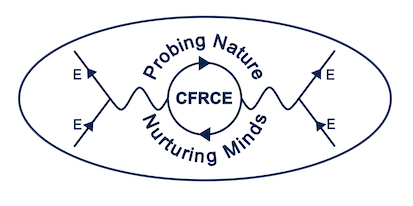Bijoy Krishan: Ivy League University Starting from 11th Grade

They had come to CFRCE with their son Bijoy Krishan and were met by one of the counselors.
"He blanks out during the exams," Bijoy's mother began, anxiety writ large on her face. "He is in his 11th grade and that is why...we are so worried. Next year..."
"He works very hard. Hardly takes any breaks. In fact, he is working all the time. Yet, his scores don't reflect that," his father added. "Why don't you tell the Counselor what the problem is?" he prompted Bijoy.
"Sir," Bijoy ventured, "I prepare very well for the exams. I plan in advance. I don't keep anything for the last moment. But I don't know what happens when I sit in the examination hall. I don't remember anything. I sometimes see the question paper also as a blank paper."
"We think he is under a lot of stress," his mother continued. "We don't pressurize him at all. We ask him to take breaks between his studies. But he refuses. He says he doesn't need any. But isn't relaxation necessary for health?"
"I ask him to at least take a walk for five to ten minutes. He says he gets more tensed if he does that," his father said.
"Sir," Bijoy spoke, "I get more tensed if I do something else than studies. I think I need all the time. There is so much to study."
After that the three fell silent.
"Why do you think you blank out?" the Counselor asked.
"I think I need to prepare more. I am not working hard enough," Bijoy said.
"What do you mean by "hard"," the Counselor asked.
"I need to put in more time," Bijoy replied.
"How much time more?" the Counselor asked.
"All the time I can," Bijoy said. "I mean, I sleep more than necessary. I must cut down on that," he added.
"How many hours do you sleep?" asked the Counselor.
"Around five hours. I try to reduce it to four but it is difficult," Bijoy responded.
"No wonder you blank out!" The Counselor commented.
"Sir?" Bijoy seemed bewildered.
"Sir, is he doing something wrong?" Bijoy's mother was really anxious.
"Not quite, wrong is not the term," the Counselor said. "He is no doubt under stress, but that is not the problem," he continued. "The problem is his response."
"You mean, stress is not the problem?" Asked Bijoy's father.
"Stress is never the problem," the Counselor spoke. "Stress is never the problem. It is the stress-response that is the problem. That is, how one responds to stress. Normally, the human being responds to stress in three modes, fight, flight or freeze. At least, that is how the untuned stress response works."
"Is that so?" Asked Bijoy's father.
"Yes," the Counselor continued. "The fact is that the human brain is in reality three. Yes, the human being has three brains, not one."
"Sir, it is said that we don't use more than one percent of our brains. Do we really have three brains?" Asked Bijoy, astonished.
"Of course," the Counselor spoke. "You know that from your Biology classes but without realizing it. You see, acording to neuroscience findings, reptiles like lizards and crocodiles have only one brain, the so-called reptilian or survival brain. Mammals like cats and dogs have two brains, both the reptilian and the so-called, mammalian or social-emotional brain. Only human beings have three, the reptilian, the mammalian and the human self aware, thinking brain. The mammalian brain is responsible for the fight, flight, freeze modes. The human being responds in a similar bit more complicated manner than the mammal. Of course, for the mammals there is no problem os stress. They respond to it by fight, flight or freeze. But human beings tend to trigger these responses even when there is no real stress. They respond equally to perceived or projected stress. Moreover, they are prone to become not just acutely but chronically stressed. This leads to a host of other problems. So it is very important to get hold of the stress response."
"Sir, you said Bijoy's problem comes from lack of sleep?" His mother asked.
"Of course," the Counselor replied. "Sleep is a balance mechanism. It is necessary for repair and renewal. If he cuts down on that, he will lose heavily in the long run."
"And moreover," continued the Counselor, "you say he does not play or do anything else than study. That also is the source of his problems."
"But he has so much to study?" Bijoy's father added.
"Rather, he has so much to learn!" Commented the Counselor. "He need not study so much. In fact, he has to cut down on studies and boost up his learning. And for learning, sports, games and physical movement are absolutely necessary. The brain develops better by means of physical movement. If you cut down on that you cut down on brain development as well. As the Psychologist Carla Hannaford says in her talk, and writes so eloquently, in her book, "Smart Moves: Why Learning is not all in your Head," the brain thrives on movement. Perhaps future generations will condemn the classroom confinement of children as a crime as it retards brain development!"
"So, could you please enroll Bijoy in your Academic Achiever's Program?" Bijoy's mother asked.
"That depends on how strong his application is," the Counselor smiled.
"Sir, is there an entrance exam?" Enquired his father.
"No, not an entrance exam. We don't enroll students in that manner. We consider it too simplistic to test students like that. Even if we did that it would not be of much help. Rather, we seek to find out the self-drive and motivation to succeed, of the student himself. Bijoy will have to write a Statement of Purpose." The Counselor explained.
"A Statement of Purpose? I am afraid Bijoy is not that good in writing. If he was, he would have done well in his exams, wouldn't he?" His mother queried.
"Oh, that does not matter. All we require is for him to express why he wants to join our program. You see, having a strong reason for that is in itself a step on the path to success. The 'Why' questions are processed in the deepest part of the brain. The 'How' in the deeper but not deepest and the 'What' in the most shallow part of the brain. Top achievers are those who have really strong reasons to succeed. The same is true of Companies or Organizations. The topmost level ones like Apple or Google are those with a strong 'Why' for their existence. If you recall Steve Jobs' statement, - "We are here to make a dent in the universe. We are creating an entirely new consciousness. Like an artist or a poet. We are rewriting the history of human thought with what we are doing," you will know what having a strong "Why,' means. The next level ones are those with a 'How.' And the others are those with a 'What.' If you want to know more about this you can listen to Simon Sinek's TED talk or read his recent book, Start with Why?"
Bijoy suddenly looked animated. He could hardly contain his excitement. "Sir, that is from the movie,"Pirates of the Silicon Valley," isn't it? That is one of my favourite movies. I am very much inspired by Steve Jobs. I have always wanted to do create something like Apple Inc. And after reading the book, "The Google Story," I am really determined to something like Larry Page and Seregy Brin also. But everyone tells me not to daydream. I don't think I do that. I think I really, really am inspired to do great things in life."
"I am sure you do. And so did all those whom you named. And when they were like you they also were told not to daydream. But they choose to keep their dreams! And their dreams made them what they are today. Those who told them not to dream, well, everyone knows only too well what they eventually became. So keep your dreams. And listening to the tone of your voice I am sure you will certainly do so." Affirmed the Counselor.
Bijoy did write his SOP soon and it was found to be really perceptive. He was given admission into the Academic Achiever's Mentoring program. Three weeks later his parents came up with a new problem. His performance had not improved. On the contrary, it had gone done a little.
"You said his performance would go up...but..." Bijoy's mother was anxious. This time she had come accompanied by Bijoy's younger brother, Biman Krishan.
"But it has gone down isn't it?" The Counselor smiled.
"Yes...but why?" Bijoy's mother asked.
"It happens sometimes and it is not at all surprising. Rather, it is proof that he is going to do well," the Counselor assured her. He looked at Bijoy's brother and smiled. "Could you do us a favour?" He asked him.
Biman looked confused.
Please do one thing, the Counselor continued, "Jump up a little. But don't bend one bit. Just jump."
Biman tried to jump but couldn't. He appeared surprised.
"Go ahead, jump." The Counselor encouraged.
Biman looked at his mother and tried again. He couldn't jump even a little.
"Ok, no problem. Jump as you want. You don't have to not bend." The Counselor prompted.
Biman jumped up.
"Could you jump higher?" Asked the Counselor.
Biman bent even more and jumped higher.
Mrs. Krishan's eyes opened wide.
"You see the point?" The Counselor explained. Bending down is necessary to jump. Likewise, sometimes, not everytime, but sometimes, an initial fall may precede a climb. It may not be necessary always but when it does happen there is no need to be alarmed or to draw hasty conclusions. Anyway, our experience tells us that this is perfectly normal and Bijoy will soon begin to perform well.
True to his words Bijoy began to perform better and better. But what was more surprising to Bijoy's parents, his restlessness began to disappear day by day. He was found to be sleeping more soundly and for longer hours. He soon resumed his outdoor games that he had given up. And his scores improved dramatically. By the time he entered his 12th grade he was in a completely safe position.
Today, Bijoy is in one of the top Universities in the United States and working in the field of Mechanical Engineering and specializing in Electronic Computerized Fuel Mapping with many a patent to his credit.
